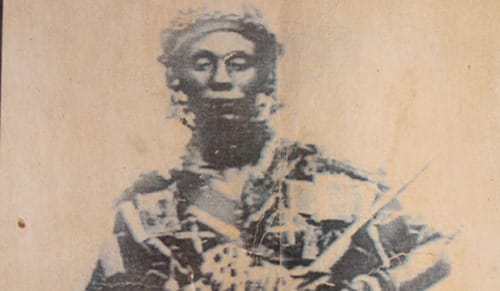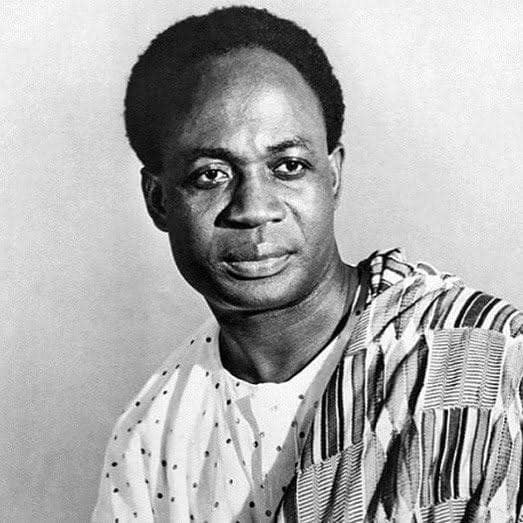
African female warriors you should know
Africa has a rich history of strong and courageous women who have played significant roles as warriors and fighters. While the specific details and names may vary across different African cultures and regions, here are a few notable examples of African female warriors:
Here are 5 African female warriors you should know:
1. Queen Amina of Zazzau

Queen Amina, also known as Queen Aminatu, was a legendary queen of the ancient Hausa city-state of Zazzau, which is now part of modern-day Nigeria. Queen Amina is believed to have lived during the 15th century, although the historical details about her life are scarce, and much of what is known about her comes from oral traditions and folklore.
According to the legends, Queen Amina was the daughter of Bakwa Turunku, the ruling monarch of Zazzau. She was known for her exceptional military skills and leadership qualities, which she demonstrated from a young age. Upon her father’s death, she ascended to the throne and became the 10th ruler of Zazzau.
Queen Amina was known for her military conquests and expanding the territory of Zazzau through warfare. She led several military campaigns and is said to have never lost a battle during her reign. She strategically fortified Zazzau and its surrounding territories, building walled cities and establishing garrison towns along trade routes. This expansionist policy strengthened Zazzau’s political and economic influence in the region.
In addition to her military achievements, Queen Amina is also celebrated for her contributions to commerce and trade. She established trade routes, fostering economic growth and cultural exchange between Zazzau and other kingdoms and empires in West Africa, such as Bornu and Nupe.
Queen Amina’s legacy has endured through generations, and she is revered as a symbol of female empowerment and leadership in African history. Her story continues to inspire many, and she is often portrayed as a courageous and strategic ruler who defied societal norms of her time.
It’s important to note that due to the scarcity of written records from that period, separating fact from legend regarding Queen Amina’s life can be challenging. However, her impact and influence on the history and culture of the Hausa people and Nigeria as a whole are widely acknowledged.
2. Yaa Asantewaa

Yaa Asantewaa is a significant historical figure from Ghana. She was a warrior queen and one of the prominent leaders of the Ashanti Kingdom, which is located in present-day Ghana. Yaa Asantewaa played a vital role in the Ashanti resistance against British colonialism during the Ashanti-British war known as the War of the Golden Stool, or the Yaa Asantewaa War.
In 1900, when the Ashanti Kingdom faced the threat of British encroachment and attempts to seize the Golden Stool, which was a symbol of Ashanti sovereignty, Yaa Asantewaa emerged as a powerful and inspirational leader. She rallied the Ashanti people, particularly the Asante army, and urged them to rise up against the British.
Yaa Asantewaa’s famous speech on March 28, 1900, at the gathering of the Ashanti chiefs and warriors, is often remembered as a defining moment in Ghanaian history. She encouraged the men to fight for their freedom, stating, “If you, the men of Ashanti, will not go forward, then we will. We, the women, will. I shall call upon my fellow women. We will fight the white men. We will fight till the last of us falls in the battlefields.”
Yaa Asantewaa’s words and leadership galvanized the Ashanti people, leading to a fierce resistance against the British forces. Although the Ashanti eventually lost the war due to British military superiority, Yaa Asantewaa’s bravery and determination left an enduring legacy. Her role in the Ashanti resistance has made her an iconic figure in Ghanaian history, symbolizing the strength and courage of women in the fight against colonialism.
Today, Yaa Asantewaa is celebrated as a national hero in Ghana. Her story serves as an inspiration to many, particularly women, and her name is associated with bravery, leadership, and the fight for freedom. Several institutions and landmarks in Ghana bear her name, including the Yaa Asantewaa Girls’ Secondary School and the Yaa Asantewaa Museum.
Nzinga of Ndongo and Matamba
Nzinga of Ndongo and Matamba, also known as Queen Nzinga or Nzinga Mbande, was a 17th-century African queen who ruled over the kingdoms of Ndongo and Matamba, located in present-day Angola. She is known for her strong leadership and her resistance against Portuguese colonization.
Nzinga was born around 1583 as the daughter of King Kiluanji of Ndongo. Her brother, Ngola Mbande, ruled Ndongo when the Portuguese started their aggressive colonization efforts in the region. Nzinga played a significant role in the resistance against the Portuguese and eventually became a prominent leader in her own right.
In the early years of Portuguese contact with Ndongo, Nzinga’s brother sought peace with the Portuguese, but he was eventually captured and died in captivity. Nzinga then emerged as a key figure in the fight against the Portuguese occupation. She formed alliances with neighboring states and organized a guerrilla campaign against the Portuguese forces.
Nzinga’s leadership was characterized by her diplomatic skills and military tactics. She strategically used diplomacy to negotiate with the Portuguese and formed alliances with other African states that were also resisting colonial rule. She even adopted male attire and presented herself as a male king during diplomatic negotiations to gain respect in a patriarchal society.
Despite facing numerous challenges, Nzinga managed to maintain the independence of Ndongo and later expanded her rule to the neighboring kingdom of Matamba. She implemented policies to strengthen her kingdoms, including infrastructure development, trade regulation, and religious tolerance. She also encouraged agriculture and trade, which helped to improve the economy of her domains.
Nzinga’s resistance against Portuguese colonization lasted for several decades, and she remained a formidable opponent until her death in 1663. Her legacy as a warrior queen and an icon of African resistance against European colonialism continues to inspire people today. Nzinga’s story is often celebrated as a symbol of African strength, resilience, and leadership.
Makeda, the Queen of Sheba
Makeda, also known as the Queen of Sheba, is a prominent figure in ancient history and biblical narratives. She is believed to have ruled over the Kingdom of Sheba, an ancient civilization located in the region of modern-day Ethiopia and Yemen.
The Queen of Sheba is best known for her legendary encounter with King Solomon of Israel. According to the Bible and various ancient texts, she traveled to Jerusalem to meet King Solomon, drawn by his reputation for wisdom and wealth. The encounter between the two monarchs has been the subject of much speculation and folklore.
In the Bible, the story of the Queen of Sheba’s visit to King Solomon is described in the First Book of Kings and the Second Book of Chronicles. She arrives in Jerusalem with a great retinue, bringing gifts of spices, gold, and precious stones. The queen tests Solomon with difficult questions, and he impresses her with his wisdom and knowledge. She acknowledges the greatness of Solomon and his God and returns to her kingdom.
Outside of biblical accounts, the story of the Queen of Sheba has been embellished with folklore and mythology. Ethiopian traditions, in particular, consider Makeda to be the ancestor of their rulers, and she plays a significant role in Ethiopian history and legends. Ethiopian folklore holds that the queen had a son with Solomon, Menelik I, who became the first emperor of Ethiopia and established the Solomonic dynasty.
Although the historical existence of the Queen of Sheba remains uncertain, her legend and legacy have left an enduring impact on Ethiopian and Yemeni culture, as well as on global folklore and religious traditions. She is often depicted as a powerful and wise ruler, renowned for her wealth, beauty, and intellect. The story of her meeting with King Solomon continues to captivate imaginations and inspire artistic interpretations in various forms of literature, art, and music.
Kahina
Kahina, also known as Dihya or al-Kahina, was a Berber warrior queen who lived during the 7th century. She was a remarkable figure and played a significant role in the resistance against the Arab Muslim conquest of North Africa.
Kahina was born into a Berber tribe in the region of Numidia, which is present-day Algeria and Tunisia. She displayed strong leadership qualities from a young age and emerged as a charismatic and influential figure among her people. Her exact ancestry and background are debated, but she is believed to have come from a line of tribal leaders.
In the early 7th century, the Arab Muslim armies began their expansion across North Africa, seeking to spread Islam and establish political control over the region. Kahina recognized the threat posed by the Arab invaders and organized a formidable resistance movement. She unified various Berber tribes and led them in a fierce resistance against the Arab forces.
Kahina’s leadership and military tactics were highly effective against the Arab invaders. Her guerrilla warfare tactics and knowledge of the local terrain enabled her to inflict heavy casualties on the Arab armies. Despite facing superior numbers and resources, she managed to hold her ground and challenge the Arab conquest for many years.
However, the exact details of Kahina’s life and her ultimate fate remain unclear due to limited historical records. According to some accounts, she fought valiantly but was eventually defeated and killed in battle. Other versions suggest that she negotiated a peace agreement with the Arabs and continued to live as a respected leader among her people.
READ ALSO: 10 Things You Can Recycle at Home








